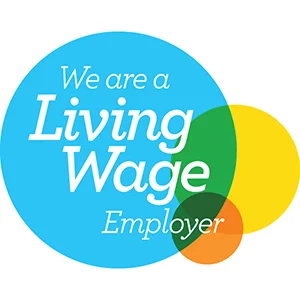
In Scotland, over 400,000 unpaid carers combine their caring role with paid employment.
Carer’s Leave Act 2023
The Carer’s Leave Act has opened some options for carers in employment. These changes came into effect on 6 April 2024.
- The Carer’s Leave Act covers employees in England, Wales and Scotland.
- Employees are entitled to up to one week’s unpaid leave per year if providing or arranging care for someone with a long-term care need.
- This leave can be taken flexibly (in half or full days) for planned and foreseen caring commitments.
- It is available from the first day of employment.
- It provides the same employment protections to employees as other forms of family-related leave, including protection from dismissal.
Equalities Act 2010
This law protects carers from direct discrimination or harassment because of their caring responsibilities.
Parental leave
If you have one year of service, you are entitled to 18 weeks parental leave to care for a child. Leave can be taken in blocks of one week up to a maximum of 4 weeks of leave in a year (for each child). It can be taken in single or multiple days if the leave is to care for a disabled child who receives Disability Living Allowance and is under 18. This leave is unpaid unless individual employers offer paid parental leave.
Employment Relations (Flexible Working) Act 2023
The new flexible working laws mean millions of employees in the UK will now have more flexibility over where and when they work. Under the new regulations, employees are entitled to request flexible working arrangements from the first day of their employment, rather than after 26 weeks. This includes requests for part-time or term-time working, flexitime, compressed hours, and varied working locations. Employees can also make two statutory requests for flexible working in any 12-month period.
Employers need to be aware that, under the new rules, they must explain the reasons behind any decision to decline a request. Employers are also now obliged to respond to flexible working requests within two months.
Flexible working
Flexible working patterns could include:
- Flexible starting and finishing hours
- Compressed working hours
- Annualised working hours (hours are calculated over a year, and you work some fixed shifts but have flexibility over some of your hours)
- Term-time working
- Job sharing and part-time working
- Homeworking and teleworking
The request for flexible working should be made in writing (your employer may have a standard form) and include:
- The date of application
- An outline of the working pattern you would like
- The date you would like to start the proposed change
- Details of any previous requests
The right to time off in emergencies
Also known as Time Off for Dependants, this gives all employees the right to take a ‘reasonable’ amount of time off work to deal with an emergency. The employer decides if this time off is paid or unpaid.
Seeking support in the workplace
Your employer may be able to help in ways you have not considered. Talk to them directly about your situation or through your HR department or union representative.
Beforehand, you should find out more about your employer’s policy for supporting carers – they may already suggest better leave entitlement. Check your contract of employment, staff handbook, HR policies or letter of appointment. If you decide to leave your job, make sure you check all your options before you resign. For example, can you take a career break, voluntary redundancy or early retirement?
Getting support
Our team supports working carers through:
- Training for employers and professionals on how to support working carers
- Signposting to other services which can provide specialist help for working carers
- General guidance on how to cope with your caring role
- Free online course on Balancing employment and care: A guide to your rights and support
You can also find out more on the ACAS website.











